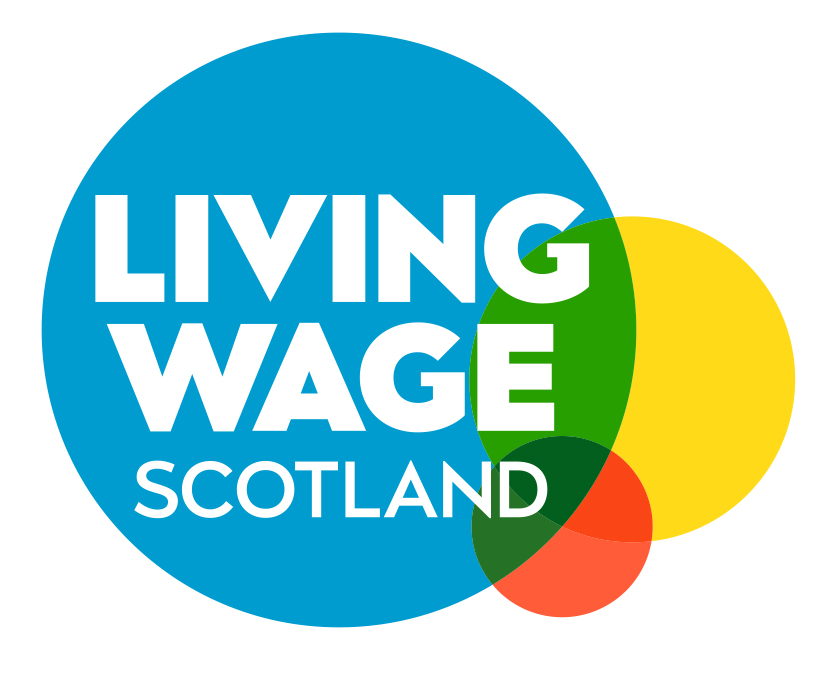New research Life on Low Pay in the Pandemic from the Living Wage Foundation shows the impact of low pay during the pandemic, with two-thirds of UK workers earning below the real Living Wage experiencing a fall in earnings since the pandemic began.
Over a quarter of low-paid workers in the UK (amounting to over one million people) have had to regularly skip meals since the start of the pandemic as a result of financial constraints, with over a third saying low pay had negatively affected relationships with close family and friends, and nearly half seeing a negative effect on their level of anxiety, according to new research from the Living Wage Foundation.
The polling of over 2,000 employees in the UK working full-time but earning less than the real Living Wage (£9.50 in Scotland) lays bare the effects of low pay on financial security, family life, and mental and physical health over the past year.
Polling found that among full-time workers earning below the real Living Wage:
- Over two-thirds (67%) had seen their pay fall over the past year as a result of the pandemic
- 29% had fallen behind with household bills in the past year
- 27% said they had skipped meals regularly for financial reasons in the past year
- A fifth (20%) said they had been unable to heat their home for financial reasons
- A fifth (20%) said they had fallen behind with their rent or mortgage
The polling of full-time, below-Living-Wage workers also found damaging effects on health and family life:
- Nearly half (46%) said that the pay they received for their work negatively affects their levels of anxiety
- Over a third (34%) said that the pay they received for their work negatively affects their relationships with close friends and family
- 31% of parents said that the pay they received for their work negatively affects their relationships with their children.
Peter Kelly, Director of The Poverty Alliance said:
“Today’s report from the Living Wage Foundation further demonstrates that those already most at risk of low pay – women, younger workers, disabled workers and those from BAME backgrounds have been hit hardest during the pandemic, with two thirds stating they had seen their incomes fall during the last year.”
It isn’t right that many of those workers we have all relied on during the pandemic – delivery drivers, supermarket workers – are skipping meals or getting into debt because of cuts to already low pay. There is more that we can all do to tackle this, particularly employers. We need to show we value all workers by paying the real Living Wage.
Employers that implement the real Living Wage can help reduce the fear and anxiety their staff are experiencing. More than 200 employers in Scotland have become accredited Living Wage organisations during the pandemic. We need more to join them and to ensure that the value we place on key and essential work is better reflected in pay”.
Laura Gardiner, Director of the Living Wage Foundation, said:
“We’ve long known that low pay leads to financial insecurity, but our analysis shows the much broader and more pernicious effects of low wages on workers and their families. The fact that many low earners – including essential workers who’ve kept the economy going through the pandemic – are forced to skip meals or forego heating their homes is unacceptable.
As the vaccine is rolled out and we inch back to some sense of normality, it’s clear business as usual isn’t an option. To recover and rebuild, and to truly level up living standards throughout the UK, we will need to see a greater focus on lifting people onto a real Living Wage that covers the cost of living.”
Julie, a Supermarket Checkout Assistant, said:
“Working at the supermarket in the pandemic has had a huge impact on my mental health, it’s increased all our responsibilities due to the Covid measures and definitely put more stress and anxiety on me. It resulted in multiple incidents where I needed time off work. Earning a real Living Wage would mean I don’t have to live my life pay-check to pay-check. It would also mean I could afford to move out of my parents’ house and increase my motivation to do the job.”
Polling also revealed the potential benefits of the real Living Wage to both workers and the businesses they work for. When asked what they thought would happen if they were to move from the minimum wage to the Living Wage:
- 63% said it would improve their family life
- 65% said it would improve their mental health
- 70% said they would be likely to stay with their employer for longer
- 68% said they would be more likely to speak positively about their employer to others.
Lynn Anderson, Living Wage Scotland Manager said:
“More employers across Scotland are recognising the need for, and benefits of investing in the real Living Wage. The findings published today are a stark reminder of why workers need a real Living Wage now more than ever, to better protect them from the worse effects of financial insecurity.
It is encouraging that over 200 employers in Scotland have chosen to become Living Wage accredited during the pandemic. They join a growing movement of over 1900 Scottish employers that want to go further than minimum wage rates, to ensure workers can cover their everyday needs and earn enough to thrive. We need even more employers to begin their journey to becoming Living Wage employers, as an important element of a fair recovery.”

